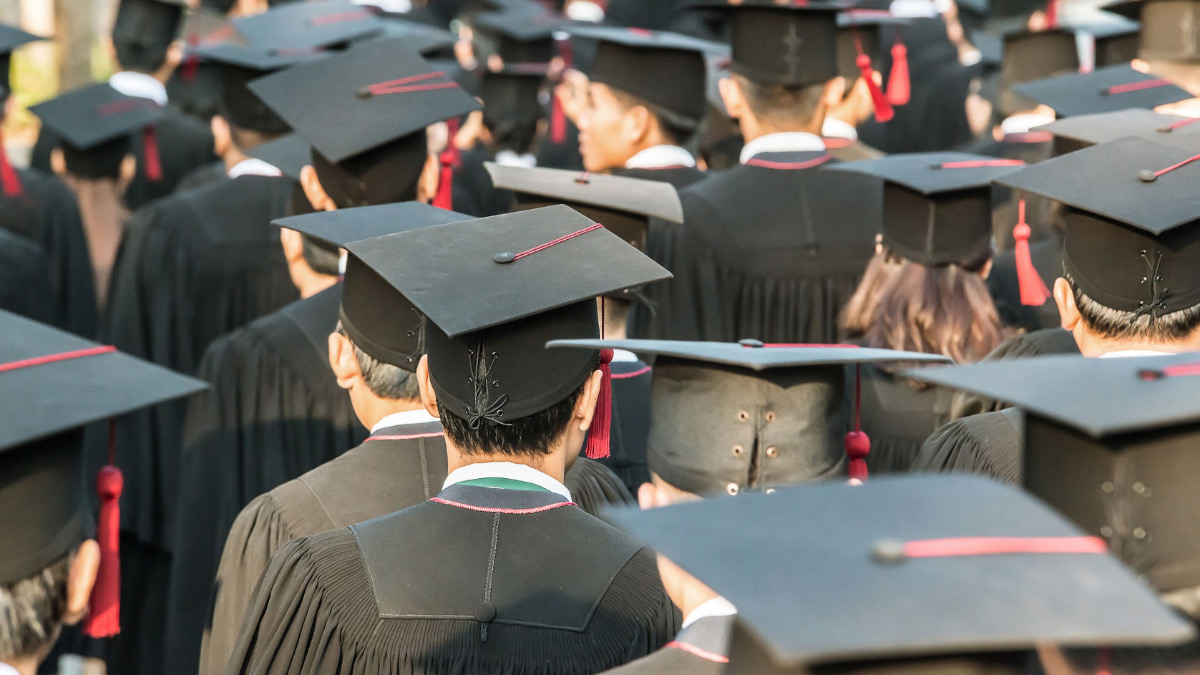Universities are very dependent on the support of individuals not currently affiliated with them—governments made up mostly of citizens not currently in college, donors who are typically decades past their own university experience, etc. Less than half of higher education revenues are student tuition fees, and even those fees are at least partly financed by government-provided loans, grants or tuition tax credits. Even much private support for universities is influenced by public policies, such as the deduction of charitable contributions from income taxes, the exemption of most endowment earnings and capital gains from taxation, and so forth.
As Lincoln said, we have a “government of the people, by the people, for the people.” So public attitudes are critical in the long run in determining the extent that generous external support of higher education will continue. The new Pew Research Center survey of several thousand Americans is therefore particularly sobering for advocates of greater spending on our colleges and universities.
Some 61% of those polled thought that America’s universities were “going in the wrong direction”—a very solid majority. While much has been made of differences between people of different political persuasions, on this critical question the similarities were more striking than the differences. Some 73% percent of Republicans or those leaning Republican felt higher education was going in the wrong direction, compared to “only” 52% of Democrats. Similarly, 73% of Republicans felt students are not getting the skills needed to succeed while in college, compared with “only” 56% of Democrats.
While Democrats were less negative about colleges than Republicans, a majority still showed major concerns. For example, Democrats were very strongly (92%) worried about what they perceive to be excessive tuition fees, a concern held by “only” 77% of Republicans. Republicans were more worried that colleges were too concerned about protecting students from hearing views that they might find offensive, but even 31% of Democrats had that fear as well. The survey found strong public support for free speech from people of differing political perspectives, thinking that maintaining the right of free expression was more important than sometimes restraining it when it was offensive to some in the campus community.
These findings echoed those of a year earlier where most Americans, and especially Republicans, felt higher education was having negative effects on America. Is it no wonder that state governments have been tepid in increasing university funding even as state revenues grow nicely in the tenth year of economic expansion? Is it not surprising that a Republican-controlled Congress is not mightily trying to pass a revised Higher Education Act shortly before the election?
There are consequences from colleges taking a “public be damned” attitude, ignoring the reality that they are ultimately highly dependent on public charity and taxation. The schools annoy nearly everyone, but especially Democrats with a strong egalitarian streak, when they relentlessly raise tuition fees and pay senior administrators super-sized salaries and benefits. They annoy a majority of Americans, but especially Republicans, when they allow demonstrators to disrupt campus life and suppress free expression. Look at the University of Missouri. Enrollment is down dramatically since the major demonstrations in 2015. State government support has similarly declined, forcing the school to reduce staff and otherwise increase fiscal austerity. The ever more radical protests at Evergreen State, including demands that white students temporarily stay off campus, has led to sharply falling enrollments and fiscal turmoil for that historically progressive school.
The resurgent leftist wing of the Democratic party, including such self-proclaimed socialists as Bernie Sanders and Alexandria Ocasio-Cortez, is pushing for free tuition, which resonates well with Democrats mad at high college prices. However, the funding of that would be very costly and anathema to most Republicans, and therefore very unlikely to be adopted and approved in the next two years unless the Democrats take complete control of Congress and sells President Trump on the idea.
The notion that federal and state governments will support higher education in ever larger amounts seems increasingly unrealistic, and at a time when enrollments are falling, the striking differences between the practices of campus communities and views of the American public are increasingly likely to prove costly for universities.












